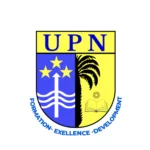“You may delay, but time will not.”
Benjamin Franklin
As you may already know, a project represents a specific set of operations designed to accomplish a singular goal within the predetermined time frame and resources.
Each project requires a team of professionals that are taking care of different tasks. Often the people included in the process don’t work together but rather collaborate from a distance, as they come from different organizations and across multiple geographies.
So what is the project management definition then? It can be explained as the application of knowledge and various tools, skills, and techniques necessary for meeting the requirements of a certain project.
Project management has been around for a very long time, but the modern development of this field started at the beginning of the 20th century. Henry Gantt is usually mentioned as the father of modern project management as he created an eponymous scheduling diagram back in 1917.
Now, this is all nice, but what’s in there for you regards obtaining a project management master’s degree online?
Earning an MBA in Project Management online can give you a huge leg up in the workplace regardless of your industry. Apart from becoming better organized, you will learn how to be a more effective leader, thus improving the overall quality of your work.
Now, let us introduce you to the sacred art of project management! 🙂
Who Are Project Managers?
Project managers are professionals that make project goals their own and leverage their skills and expertise to inspire a sense of shared purpose within the project team.
These professionals are in charge of monitoring and controlling the execution of the project while maintaining trust and communication among all of a project’s stakeholders.
To become a successful project manager, one must become adept at working under pressure and be comfortable with change and complexity in dynamic environments.
Does this sound like you? Good, because project managers are in increasing demand worldwide as more and more organizations direct their energy into projects rather than routine operations.
Bear in mind that having an MBA in project management is recognized as an indispensable competence to business success as skilled professionals are among the most valuable resources employers worldwide could ask for.
As we went over their job title, it’s about time to tell you more about the critical skills any aspiring project manager should possess.
What Skills do Project Managers Need? 20 Top Skills For Your Resume
Taking your project from start to finish successfully demands strong project management skills. Regardless of your role on the team, improving your project management skills can significantly influence the other team members’ ability to adequately complete an assignment.
The following traits should be a part of your skillset because they will improve your performance and help you get the job done more effectively.
In case you don’t possess some of these, or feel a bit out of shape, just remember that practice makes perfect. 😉
Below are listed 20 top skills every project manager should work on:
- Active listening
- Adaptability
- Budget management
- Communication
- Conflict management
- Interpersonal skills
- Leadership
- Motivation
- Negotiation
- Organization
- Problem-solving
- Project management methodologies
- Policy knowledge
- Reporting skills
- Research skills
- Risk management
- Team management
- Technical writing
- Technologically savvy
- Time management
This may seem like too much of a bite, but with the right online project management MBA training program, mastering these skills should be a piece of cake for you.
Let’s get to the real deal right away, shall we?
Dive Deep: 5 Crucial Steps in Project Management Processes
First, let’s answer the question you’re probably asking yourself (or Google) right now: What is a project management process anyway? Basically, it’s an administrative process needed for the planning and control of the services or the implementation of a particular project.
Now when we have that figured out, let’s see what are the steps in the project management process:
- Project Initiation
- Project Planning
- Project Execution
- Project Performance And Control
- Project Closure
Project Initiation
The end goal of the first phase of any project is to stamp out the scope, schedule, and cost of a project. This is accomplished by drawing up a project plan, scope, or charter, which is followed by calculating a budget, the resources needed, and a schedule.
Project Planning
In this phase, project managers are developing a roadmap that everyone will follow.
Defining the scope of the project involves identifying the cost, quality, available resources, and a realistic timetable. Project planning also includes establishing baselines or performance measures.
Project Execution
This is where the actual work begins: By this time deliverables are developed and completed. There are a lot of things going on at this phase stuff as status reports and meetings, development updates, and performance reports.
The start of the project execution phase is usually marked with a “kick-off” meeting, where the teams involved are informed of their responsibilities.
Project Performance And Control
This phase occurs over time from the project’s launch to its completion and serves as a method to measure and compare the status of the project compared to the original plan.
Depending on how smoothly everything runs, it can require relatively little effort on the project manager’s part, or be the most stressful section of the entire undertaking,
Project Closure
At this final phase, the project has been completed and the outcome has been approved.
Project managers are most likely to hold a meeting to evaluate the beneficial outcomes and identify project failures so they can make improvements for future projects.
Now, as we have went over the steps in project management processes, there is one more important aspect to get familiar with:
What Are The Knowledge Areas of Project Management?
They are the source of the essential knowledge needed to run smoother projects and meet the expectations of stakeholders.
Project management knowledge draws on ten areas and they are:
- Project Integration Management
- Project Scope Management
- Project Schedule Management
- Project Cost Management
- Project Quality Management
- Project Resource Management
- Project Communications Management
- Project Risk Management
- Project Procurement Management
- Project Stakeholders Management
Project Integration Management
Project integration management holds a project together: It includes the steps needed to define, combine, and coordinate the various activities within the project management process.
Project Scope Management
Project scope management revolves around calculating work required for the successful delivery of a project and services to focus more on the relevant tasks and prevent the wastage of work.
Project Schedule Management
Project scheduling is a vital part of any project management process as it represents how and when the project will deliver the products, services, and results defined in the project scope.
Project Cost Management
Project cost management represents a systematic approach to manage the overall cost expenses in a project.
Project Quality Management
As project quality is something that has to be maintained, this knowledge area helps in delivering an optimum quality result.
Project Resource Management
Since the resources are the backbone of any project, project resource management aids professionals in properly managing and utilizing them with project scope in mind.
Project Communications Management
This knowledge area of project management covers various processes that ensure that the communication channels remain open and that the correct information is delivered to the right teams at the right time.
Project Risk Management
Project risk management revolves around identifying the potential risks that can affect the project, analyzing them to see if their impact will be for the better or the worse, and taking proper precautions.
Project Procurement Management
The main purpose of this knowledge area is to help project managers in establishing and maintaining a healthy relationship with the vendors as this is essential for providing goods and services throughout the project lifecycle.
Project Stakeholders Management
Project stakeholder management revolves around monitoring and maintaining productive relationships with the investors involved in the project.
Conclusion
Project management is a highly rewarding field that can open numerous doors to MBA graduates.
Earning your MBA in Project Management online is a great way to pursue higher education especially if you’re working full time, have a family, or just want flexibility.
Save your precious time and study from the comfort of your home without having to commute to take on-campus classes.
If you want to take on the career path of a project manager, download our prospectus, and learn more about the program.
Don’t hesitate to contact us for any additional questions as we’ll be more than happy to help you.



Great article! I found it very helpful